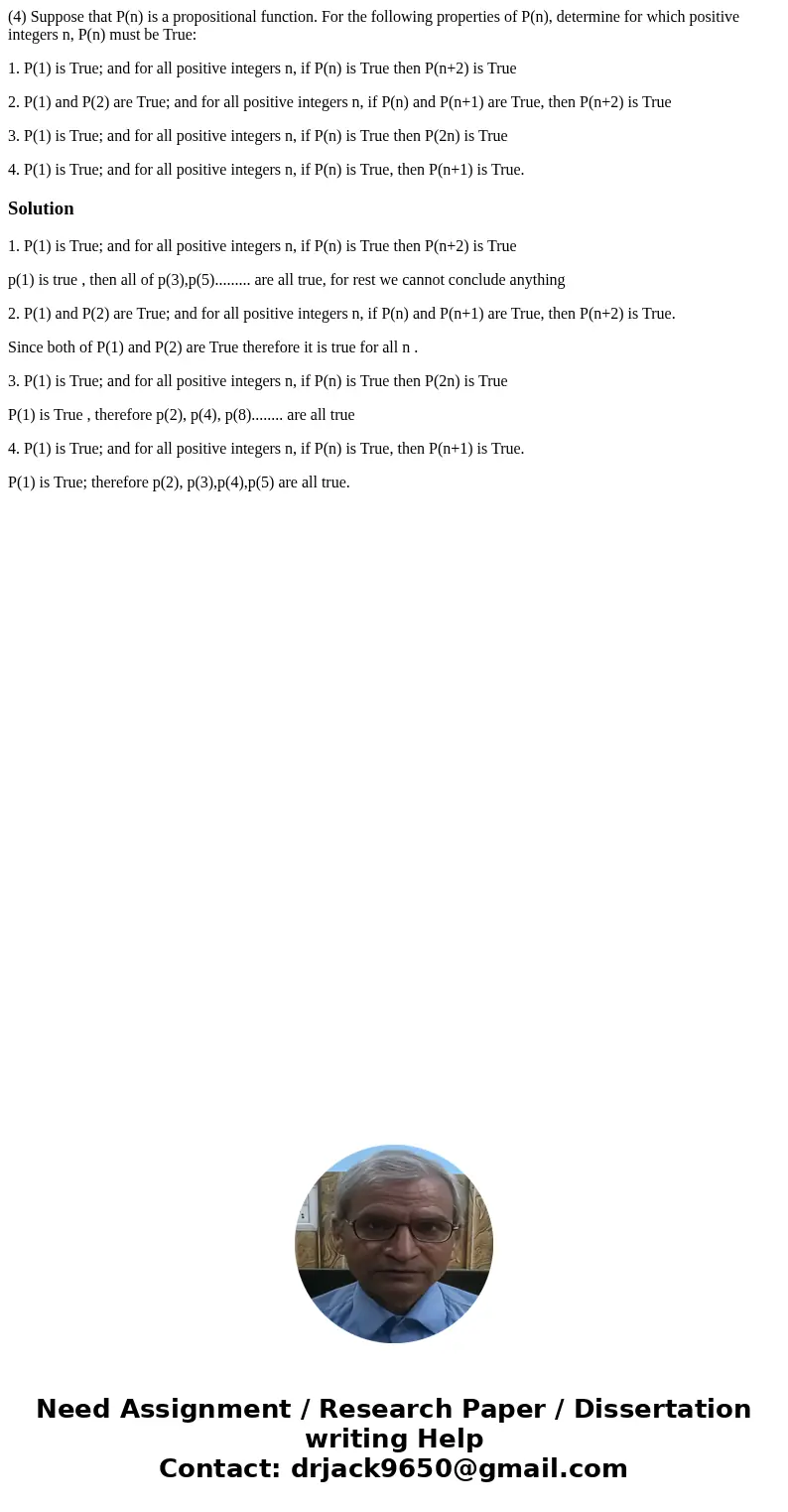4 Suppose that Pn is a propositional function For the follow
(4) Suppose that P(n) is a propositional function. For the following properties of P(n), determine for which positive integers n, P(n) must be True:
1. P(1) is True; and for all positive integers n, if P(n) is True then P(n+2) is True
2. P(1) and P(2) are True; and for all positive integers n, if P(n) and P(n+1) are True, then P(n+2) is True
3. P(1) is True; and for all positive integers n, if P(n) is True then P(2n) is True
4. P(1) is True; and for all positive integers n, if P(n) is True, then P(n+1) is True.
Solution
1. P(1) is True; and for all positive integers n, if P(n) is True then P(n+2) is True
p(1) is true , then all of p(3),p(5)......... are all true, for rest we cannot conclude anything
2. P(1) and P(2) are True; and for all positive integers n, if P(n) and P(n+1) are True, then P(n+2) is True.
Since both of P(1) and P(2) are True therefore it is true for all n .
3. P(1) is True; and for all positive integers n, if P(n) is True then P(2n) is True
P(1) is True , therefore p(2), p(4), p(8)........ are all true
4. P(1) is True; and for all positive integers n, if P(n) is True, then P(n+1) is True.
P(1) is True; therefore p(2), p(3),p(4),p(5) are all true.

 Homework Sourse
Homework Sourse